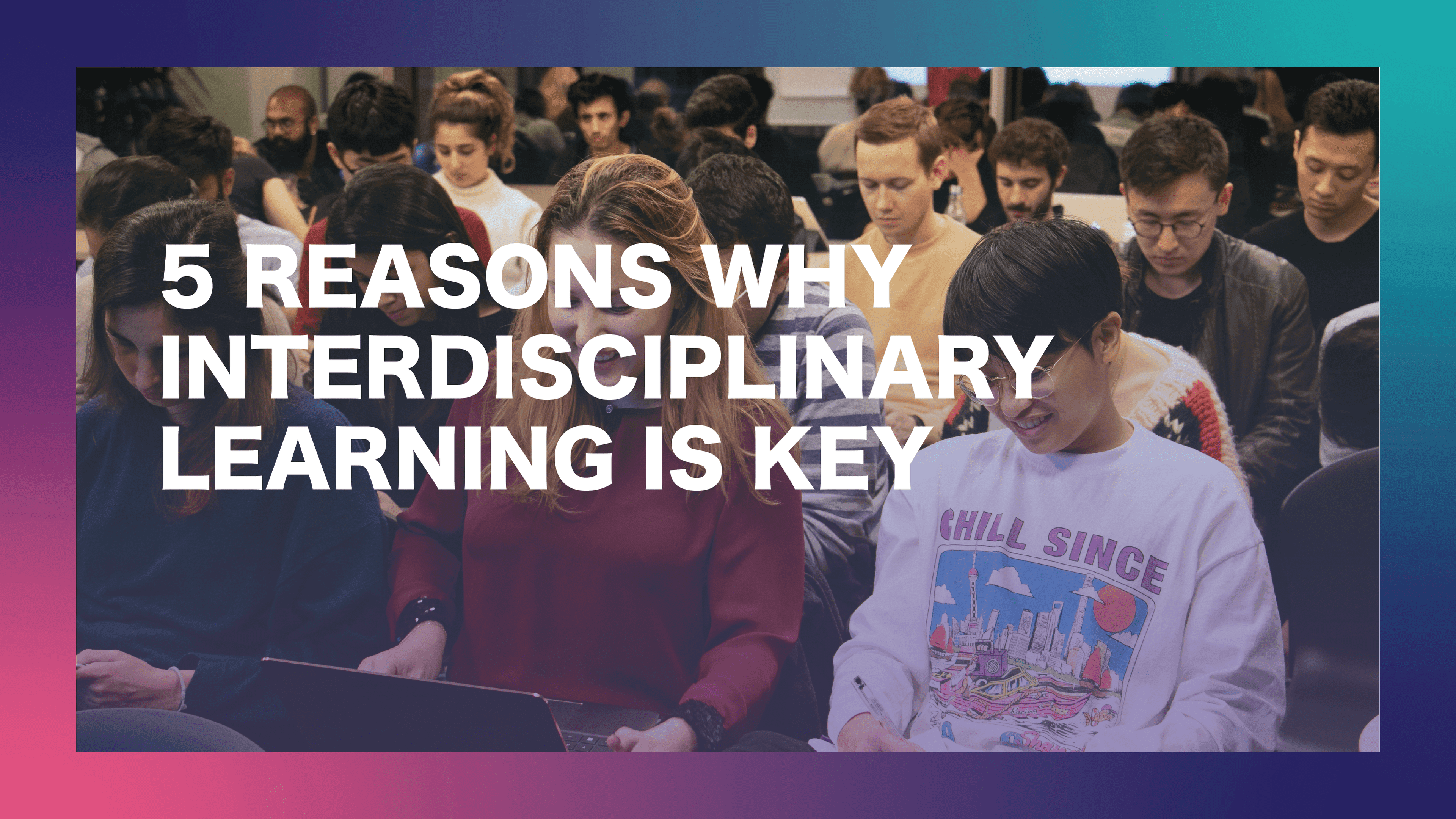Interdisciplinary Learning
For every large-scale project, responsibilities are usually divided and everyone is in charge of the task they are best at, coming together like pieces of clockwork to produce a final result above and beyond their individual abilities. So why has this new age of technology revived the need for individuals with a wider and more fundamental skill set in the workforce?


Writer at Harbour.Space University
For every large-scale project, responsibilities are usually divided and everyone is in charge of the task they are best at, coming together like pieces of clockwork to produce a final result above and beyond their individual abilities. So why has this new age of technology revived the need for individuals with a wider and more fundamental skill set in the workforce?
Whenever humans try to create something big, they only need a couple of people to come up with the idea and outline a plan. However, they need many more people to actually produce it.
Large-scale production is why specialization became so essential during the industrial revolution - in the words of economist and philosopher Adam Smith,
The words of Adam Smith hold true for the mindset of the industrial revolution, where the sole objective was a manual, large-scale, mass production of goods, but a lot has changed since then, and at the heart of which is technology - automatization, to be specific.
From the Age of Production to the Age of Automation
For Smith, ten workers specializing in individual manual tasks may have made sense, but in a version of the story where machines have slowly begun to automate much of these specialized tasks, the need for specialization is not as apparent anymore, even for large-scale projects.
If all manual labor will eventually become replaced by automatization (hint: that’s the direction we’re headed in), then why train workers to function solely as individual cogs for the machine when, at the same time, these workers are actively being replaced by actual cogs? Surely they have valuable skills outside of their area of specialization, but if they never have the opportunity to explore them, they will never benefit from them, and neither will their employer.
You should be convinced by now, but in any case, here are five reasons why you should expand your learning scope:
1. You Are at Risk of Being Replaced by Ai
Let's start with the obvious ones. The age of AI is no longer on the horizon; it’s a reality. We’ve already gone from jobs which are being replaced to entire industries which have been automated. Nowadays, and especially for the forseeable future, specializing in only one field could potentially see you lose your job to automatization in the blink of an eye. The job market is more disheartening if you have all of your eggs in one basket, only to find that there are robots who can offer more higher-quality eggs than you can, at an increased and more precise production rate. And as we said before, the message is clear - the robots are coming.
In an era where acquiring specific information is easier than ever, the traditional requirements for certain fields have dropped dramatically, and many sectors have become saturated. The employment landscape is only going to get more competitive from here, and this means three things - first of all, that employers will have to start differentiating candidates based on more than what they specialize in, and that, as a result, the value of adaptable, multidisciplinary individuals will skyrocket. Finally, it means that those who are adaptable will never be left with their backs against the wall - they will always have a door open in another industry.
3. Big-Picture Thinking Is a Requirement of Visionary Management
Automatization is shifting the needs of the workforce, especially for managerial positions in tech related fields. Managers still have one or two areas of specialization, they still recognize each component’s importance, but they need to understand how it contributes to the bigger picture, and what procedures can be automated to make the whole process more efficient. Most importantly though, they need to use their multidisciplinary knowledge to spot business opportunities that don't necessarily fall under one industry. Some call this innovation, others disruption, but one thing is certain - this is what separates a good manager from a visionary.
4. Innovation Results From the Unusual Combination of Skills and Knowledge
With the rise of the internet, the most extensive source of information in the history of humanity, an individual’s power lies not in the volume of information she possesses, but in what creative ways she can use it to add value to her work - how she can use it to innovate. And as research has shown, Diversity of the Mind, a phrase coined by Nel Mostert to describe diversity in skills, knowledge, and thinking patterns in her 2007 study, is the key to critical, creative and innovative thought.
5. Following Your Curiosity Will Keep You Alive
Curiosity is one of the most powerful motives humans possess. As kids, we encounter something we’re curious about, then passionately immerse ourselves in it until something else arouses our curiosity, and we go on to do the same. In essence, interdisciplinary learning is the adult version of this tendency. Yet, as we grow older, fears of all types seem to beat these feelings out of us, and it becomes more and more difficult to explore different areas of life without worrying that you’re on the wrong path. So, here it is: do not stop pursuing and exploring things that you’re curious about. When you find them, explore them passionately until they no longer arouse your curiosity. You’ll be more creative, you’ll be more adaptable, and you’ll be happier.
Just to be clear, we still recognize the importance of specializing in one field - specialists are still a decisive component of any project, there is no doubt about that. However, the future, especially the future of management, belongs to polymaths - individuals with an interdisciplinary skill set and a deeper understanding not only of how specific things are done, but what role they play in the bigger picture.
Inspired? We hope so. Head over to our Instagram page for more cool content, or get in touch with us at hello@harbour.space to let us know what you thought!
Thanks for reading
If you’re interested in further growth, take a look at our website to learn what your future could look like at Harbour.Space. Lastly, get in touch with us at hello@harbour.space to let us know your thoughts!
